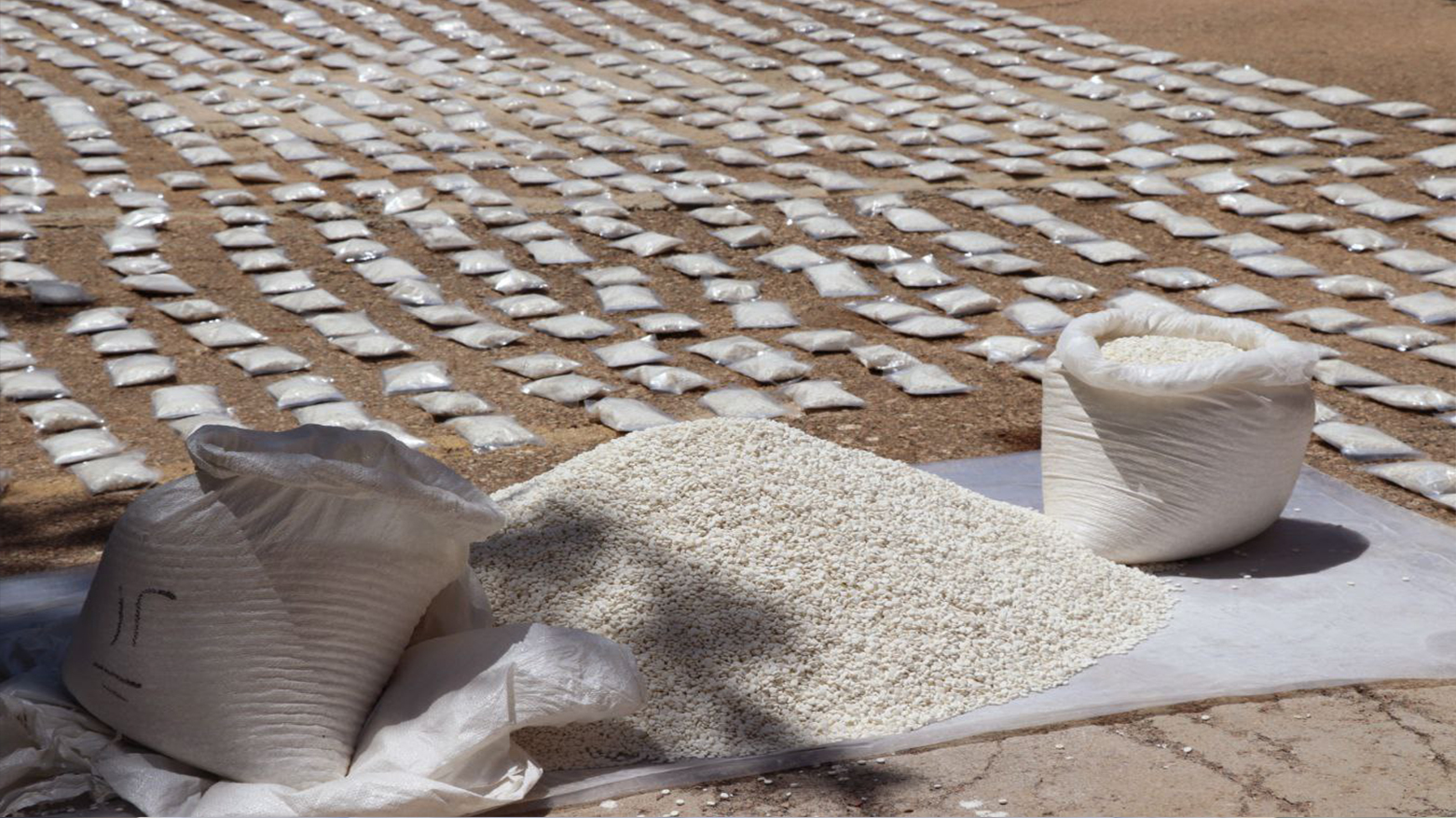Syrian Authorities Seize 1.7 Million Captagon Pills Prepared for Smuggling
Syria seizes 1.7M Captagon pills in Daraa, continuing crackdown on Assad-era drug networks. New transitional government has confiscated 320M pills since December, dismantling what was once the world's largest Captagon producer under the former regime.

By Ahora Qadi
ERBIL (Kurdistan24) – Syrian authorities on Sunday announced the confiscation of 1.7 million Captagon pills in the country’s southern province of Daraa, marking a significant operation in the ongoing efforts to dismantle the remnants of the narcotics trade that flourished under the now-deposed regime of Bashar al-Assad.
According to the state-run Syrian Arab News Agency (SANA), anti-narcotics units raided warehouses east of Daraa province where the illicit substances had been stockpiled in preparation for smuggling abroad. The operation culminated in the seizure of a massive haul of 1.7 million Captagon tablets.
Expanding campaign against drug networks
This latest operation follows a series of intensified counter-narcotics actions launched by the transitional Syrian government in recent months. On Friday, the Interior Ministry announced the interception of approximately 3 million Captagon pills and 50 kilograms of hashish after tracking a trafficking network operating in rural Damascus.
The head of Syria’s Anti-Narcotics Department, Brigadier General Khaled Eid, revealed last Thursday that security forces have uncovered 13 facilities used to manufacture narcotics and seized a staggering total of 320 million Captagon tablets since the collapse of the Assad regime in late 2024.
Dismantling a narco-state legacy
For years, Syria was considered the epicenter of the global Captagon trade. According to estimates from the British government, the now-defunct Assad regime was responsible for producing approximately 80% of the world’s supply of the synthetic stimulant, which has fueled both regional conflicts and criminal economies.
The illicit Captagon market is believed to generate an estimated $10 billion annually. Of that, the Assad family reportedly pocketed as much as $2.4 billion in profits each year, cementing its status as the most profitable narcotics empire in the Middle East.
New era under transitional leadership
On December 8, 2024, Syrian opposition factions completed their takeover of the country, ending 61 years of Ba'ath Party rule — including 53 years under the Assad family. This watershed moment marked the beginning of a sweeping transition in governance, security, and policy.
The new Syrian administration, formed in January 2025, appointed Ahmed al-Sharaa as president for a five-year transitional period aimed at rebuilding institutions and restoring the rule of law. Since then, the government has prioritized countering the narco-trafficking networks entrenched during the Assad era.
As part of this national initiative, security forces continue to pursue traffickers and shut down supply chains once protected by the regime, aiming to erase the legacy of Syria’s transformation into a narco-state and restore regional stability.
